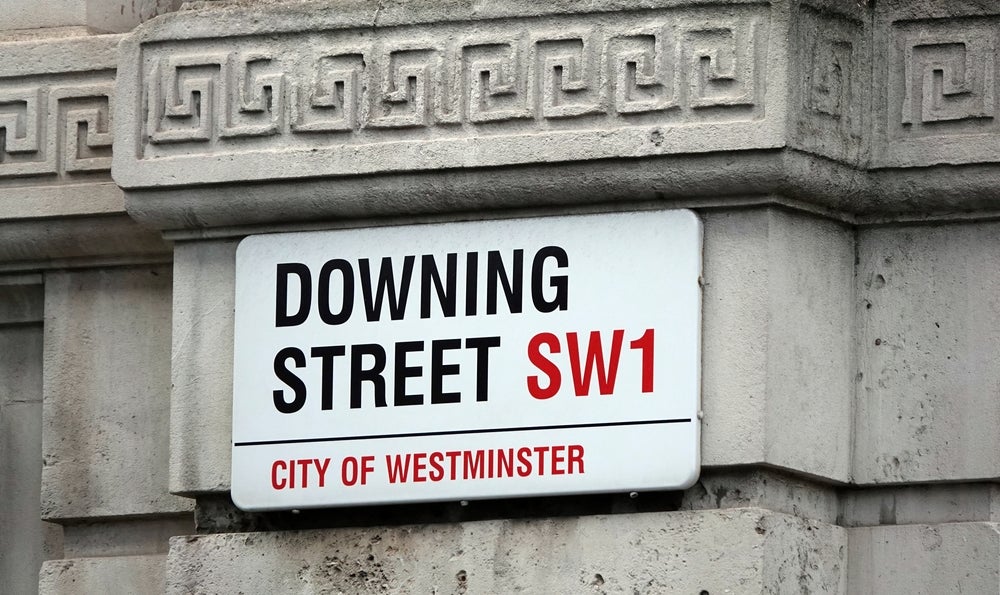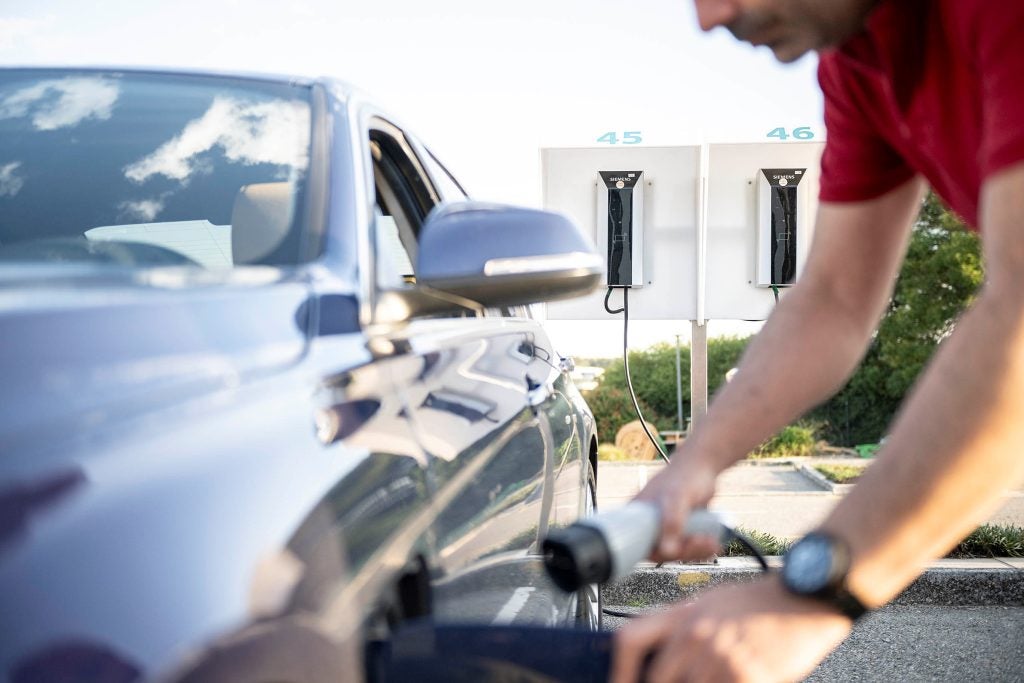
As chief executives head home from the Swiss mountain town of Davos following the annual World Economic Forum, Leasing Life looks to LeasePlan’s Sustainability Report, produced in November last year, as an example of the work being done by European-based car leasing provider to shift to low carbon plan.
LeasePlan operates in two markets: Car-as-a-Service for new cars, through its LeasePlan business, and the high-quality three-to-four-year-old used car market, through its CarNext.com business. The company has more than 1.9 million vehicles under management in over 30 countries, according to its website.
In his introduction to the report, Tex Gunning, CEO of the Netherlands-based provider, said: “There can be no more doubt about the urgent need for action to tackle human-made climate change. The UN has warned that unless we drastically reduce our CO2 emissions and reach net zero by 2050, global warming will exceed 1.5 degrees, with far-reaching consequences for all life on earth.
“This is the biggest challenge we face as humanity, and as road transport accounts for around 20% of global CO2 emissions, we’re determined to play our part. That’s why we support the goal of carbon neutrality by 2050. But we also think we can do better. We want to achieve zero tailpipe emissions from our entire fleet of 1.8 million vehicles by 2030, starting with our employees’ vehicles.”
“Delivering on zero mobility also means helping to shape long-term policies and incentives to support EV technology and adoption. Today, LeasePlan is at the heart of the global conversation on sustainable mobility through influential forums such as the Climate Group’s EV100 initiative, the World Economic Forum’s Climate Leaders’ Group and the World Business Council for Sustainable Development. Together, we’re pressuring policymakers at the national and supernational level to implement a level playing field for EV incentives and to create a comprehensive public charging infrastructure.”
Below are excerpts from LeasePlan’s sustainability report.
How well do you really know your competitors?
Access the most comprehensive Company Profiles on the market, powered by GlobalData. Save hours of research. Gain competitive edge.

Thank you!
Your download email will arrive shortly
Not ready to buy yet? Download a free sample
We are confident about the unique quality of our Company Profiles. However, we want you to make the most beneficial decision for your business, so we offer a free sample that you can download by submitting the below form
By GlobalDataThe world around us
The UN’s Intergovernmental Panel on Climate Change has pointed to the need for ‘rapid, far-reaching and unprecedented changes’ to limit global warming to 1.5 degrees. To achieve this, it estimates global net human-caused emissions of CO2 will need to fall by about 45% from 2010 levels by 2030, and reach net zero by around 2050.
Many in the business community stand ready to support this goal. In an open letter ahead of the Climate Change Conference (COP24) in Katowice in November 2018, the World Economic Forum’s
Alliance of CEO Climate Leaders, of which LeasePlan is a member, called on governments to implement better carbon pricing mechanisms, take steps to stimulate low-carbon finance and investments, and create policy tools to influence demand for low-carbon solutions.
As the fastest-growing contributor to human-caused CO2 emissions worldwide, the transport sector is a major focus area. Road transport in the EU alone accounts for around 21% of all carbon emissions, according to the European Commission in 2016.
It is also responsible for high levels of pollution, principally nitrogen oxides and particulate matter, that impact public health in urban areas. Around half the vehicles on the road in the EU are registered to corporate organisations, making businesses key actors in the transition to low- or zero-emission mobility.
Sustainability strategy
To deliver on our sustainability targets, we have formulated a comprehensive strategy that responds to the changes taking place in our industry and the world around us, and which is aligned to the broad interests of our stakeholders.
The strategy is based on three priority areas:
- Shaping the future of low-emission mobility.
- Strengthening our contribution to societal wellbeing.
- Reducing our own environmental impact.
Each area has been further substantiated by work streams, each of which has an owner from the business. They set baselines, develop action plans, set targets and define KPIs.
Our strategic process is underpinned by clear governance, consistent reporting and an open dialogue with stakeholders to determine the topics that are most material to our business.
Shaping the future of low-emission mobility
As a Founding Partner of the EV100, we have set ourselves the goal of achieving net-zero tailpipe emissions from our total fleet by 2030. We will do this by facilitating the uptake of low and zero-emission vehicles in our customers’ fleets.
Our focus is to make low-emission mobility an attractive proposition for our customers. We believe that achieving zero emissions is realistic as the EV market will develop rapidly in the years ahead as efforts to combat climate change intensify and costs of ownership continue to fall.
To drive this transition, we are targeting customers in 12 EV-ready countries with low-emission value propositions. These are based on high-quality operational services, and include ‘full package’ solutions with charging options. We are also partnering with automakers to make sure we can offer low-emission vehicles at a competitive price, while looking to address challenges around the residual value of low-emission vehicles.
Roadmap to net-zero
Our transition roadmap can be broadly divided into three stages that correspond to anticipated developments in the overall EV market.
- 2017-2020: Walk the talk
Through our strategic partnerships, we build compelling EV propositions, including charging services, in EV-ready countries. We work closely with automakers to maximise the number of EVs in our fleet and stimulate demand via events, marketing campaigns and consultancy services for our customers.
- 2020-2025: Accelerate
As automakers ramp up EV production volumes, new models reach the market across all segments. Total costs of ownership become competitive in most markets as battery costs fall. Government incentives and new low-emission zones spur growing customer demand for EV fleets. There is now a full EV product line-up available at an acceptable cost, while the availability of charging infrastructure at home, workplace and in public places is being ramped up, including ultra-fast highway-charging. During this period, we expect to see EVs accounting for a majority of our new orders in EV-ready markets, while less mature markets show signs of high growth, but from a low base.
- 2025-2030: Net-zero
Most major automakers now have a full line-up of EVs. Developments in battery technology have greatly reduced ‘range anxiety’ and supply is sufficient to meet demand. Government legislation is also strongly incentivising adoption. As a result, the total cost of ownership of EVs is lower than for ICEs in most markets. Infrastructure in EV-ready markets is mature enough to charge EVs at all times necessary. The first of our mature markets will reach zero emissions by the beginning of the period, while less mature markets catch up.
Progress 2018-19
We have begun providing end-to-end EV solutions for our customers in 12 countries and have established the processes and IT platforms necessary to facilitate EV fleet management.
Key features of our EV proposition include:
- Partnerships with automakers to offer EVs at attractive rates
- Products and services for workplace charging, home charging, charging in public areas and destination charging
- Consultancy services for business case impact, vehicle selection and transition planning
- A 24/7 helpdesk and answers to driver FAQs on EVs and charging
- Tutorials about all aspects of EV driving
- New digital products and services to support EV driving
We have also introduced the possibility of carbon-neutral contracts through our partnership with Land Life Company. Under the partnership, LeasePlan can help customers offset their fleet emissions through an innovative reforestation programme. Land Life Company is a leader in the sustainable and technology-driven reforestation of degraded land in the EU and US.
New orders of EVs
The composition of our fleet is rapidly changing. EVs18 accounted for 5.7% of all our new vehicle orders in Q2 2019.
Other activities
To give our customers and drivers a better understanding of EV advantages and requirements, LeasePlan has launched a series of educational initiatives. We organised client events, visits and pilot programmes to help clients start their electric journeys. We also published a wide range of information about EVs through online and offline channels. These included whitepapers on electric LCV adoption, and our Sustainable Fleet Benchmark, which offers insights into how organisations are adopting low-emission fleets.
In early 2019 we successfully issued our first-ever Green Bond, a EUR 500 million five-year fixed rate note. An industry first, the proceeds from the Green Bond will only be used to finance or refinance the purchase of Battery Electric Vehicles (BEVs), speeding up the transition to electric driving and helping to tackle climate change.
Advocating change in our industry
Tackling climate- and air-quality related automotive emissions requires a cross-sector effort from government, NGOs and the private sector, acting together to address challenges in several areas. A focus in our sustainability strategy is, therefore, to work with key stakeholder groups — automakers, policymakers, consumers and mobility companies — to advocate the implementation of consistent, cost-effective, long-term policies and incentives that support the adoption of low-emission technologies.
Our global advocacy programmes and initiatives include:
EV100
Organised by The Climate Group, the EV100 global business initiative is designed to fast-track the uptake of electric vehicles and infrastructure among large global corporations. LeasePlan is a founding partner of EV100, which was launched around the UN General Assembly in 2017, and is the initiative’s only automotive company. EV100 is the only initiative of its kind to encourage global business commitments on electric transport, with members committing to transition their petrol and diesel fleets to electric vehicle fleets by 2030.
The Zero Emission Vehicle (ZEV) Challenge
In 2019, LeasePlan became a founding partner of the Zero Emission Vehicle (ZEV) Challenge, a new global coalition organised by The Climate Group and the C40 Cities Climate Leadership Group. The ZEV Challenge brings together states, regions, cities, businesses and NGOs to send a clear signal to the automotive industry about increasing demand for EVs. Partners develop and advocate policies and solutions to spark mass EV adoption. In its first year, over 60 states and cities and businesses have committed to the targets.
They represent a population of over 237 million, while the businesses account for a combined revenue of over half a trillion US dollars. As a founding partner, LeasePlan uses its policy influence and customer relationships to accelerate adoption among some of the world’s largest businesses.
World Economic Forum (WEF)
Global leaders representing more than 1,800 organisations gather each year at the World Economic Forum’s Annual Meeting in Davos, Switzerland, to exchange ideas, tackle the big issues of the day, and plan for a better future.
LeasePlan has been present at the WEF since 2018 where it supports discussions on the transition to low-emission mobility. In that same year, LeasePlan CEO Tex Gunning was designated Automotive Sector Champion for the WEF’s Alliance of CEO Climate Leaders. LeasePlan aims to bring the latest market research and insights to the WEF. In 2018, we published our first Sustainable Fleet Benchmark ahead of the event to help raise awareness around the adoption of sustainable fleet management practices. In 2019, we published our new EV Readiness Index to help global corporations with international fleets identify the most suitable markets to begin their transitions to low-emission mobility.
In 2019, LeasePlan participated in various sessions at the WEF Annual Meeting in Davos. LeasePlan CEO Tex Gunning joined panel discussions on ‘Building a Clean Mobility Future’ and ‘Electric Vehicle Future: The Power of Fleets’ to help explore conditions, strategies, and policies for accelerating EV adoption. We also hosted a private dinner for business leaders to discuss strategies for last-mile delivery that address concerns around air quality, climate change and congestion.
LeasePlan CEO Tex Gunning continues to participate in the Alliance of CEO Climate Leaders to discuss the current state of the climate action agenda and agree focus areas and deliverables for the UN 2019 Climate Summit.
World Business Council for Sustainable Development
The World Business Council for Sustainable Development (WBCSD) comprises almost 200 forward-thinking global companies that are committed to advancing the sustainability agenda. LeasePlan joined the WBCSD in 2018 to explore innovative solutions for low-emission mobility together with partners in the network. Together with the other WBSCD members, LeasePlan has developed the Corporate EV Adoption Guide. This brings together practical experiences and expertise in EV fleet transitions from a wide range of perspectives and presents them in an easy to navigate online guide.
The United Nations Climate Change Conference
The annual conferences of the United Nations Framework Convention on Climate Change (UNFCCC) serve as the formal meeting of the Conference of the Parties (COP). The COP is the decision-making body that assesses progress made in dealing with climate change. In the mid-1990s it negotiated the Kyoto Protocol to establish legally binding obligations for developed countries to reduce their greenhouse gas emissions, and the Paris Agreement in 2015, to limit global temperature rises.
LeasePlan announced the launch of its electric vehicle pilot programme for corporate companies in 2017 at COP23 in Bonn, Germany. Ahead of the 2018 COP24 in Katowice, Poland, LeasePlan was a signatory of an open letter by the WEF’s Alliance of CEO Climate Leaders, calling on governments to implement effective carbon pricing mechanisms; stimulate low-carbon finance and investments through coherent policies; and develop policy tools to educate and influence societal demand.
Disclosure, reporting and regulatory requirements
In 2018 we took the important step of conducting a materiality exercise with our external stakeholders, which is a requirement of the Global Reporting Initiative (GRI) framework. These are the most widely adopted global standards for non-financial reporting and are used by 93% of the world’s largest 250 corporations, according to the KPMG Survey of Corporate Responsibility Reporting, 2017.
At LeasePlan, we intend to start applying GRI standards over the course of 2020. To that end, we have begun setting up central reporting on topics such as carbon footprint, fleet electrification, diversity and talent development. This has required us to create baseline inventories, define ambition levels and develop action plans on both a central and local level.
Our maturing reporting activities have also improved the level and depth of our contributions to the Carbon Disclosure Project (CDP), in which we have participated since 2010. Our involvement in CDP has also enabled us to improve our disclosures to EcoVadis, the sustainability ratings and scorecard company that helps procurement teams monitor CSR and ESG practices in the supply chain.
Looking ahead, we want to substantiate our support for the international business declaration in support of the Task Force on Climate-related Financial Disclosures (TCFD), which we expressed in 2017. Set up two years ago by the G20’s Financial Stability Board, the TCFD developed a set of recommendations for companies to disclose information on how they oversee and manage climate-related risks and opportunities, as well as the material risks and opportunities to which they are exposed. LeasePlan is currently assessing its overall exposure to climate-related risks and opportunities, with a view to quantifying the associated financial impact.
Developing regulatory requirements
In addition to the expectations of our stakeholders, as a licensed bank and Public Interest Entity (PIE), LeasePlan is also subject to various regulatory requirements relating to sustainability. For example, the EU Banking Reform Package includes various provisions relating to environmental, social and governance (ESG) aspects, while both the Dutch Central Bank (DNB) and Financial Services Authority (AFM) have included sustainability in their supervisory priorities for disclosure. Furthermore, the DNB is currently engaged in a dialogue with the financial sector to update its supervisory frameworks for the incorporation of climate-related risks. Finally, as part of the European Commission’s Action Plan on Financing Sustainable Growth, the EC has published draft legislation to take ESG considerations and preferences into account.







